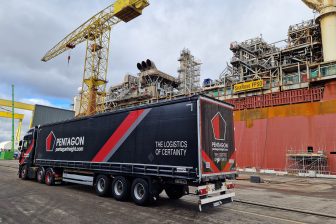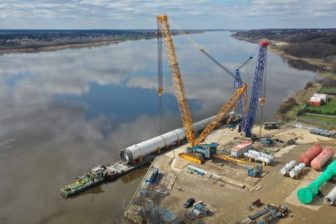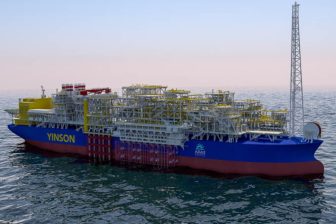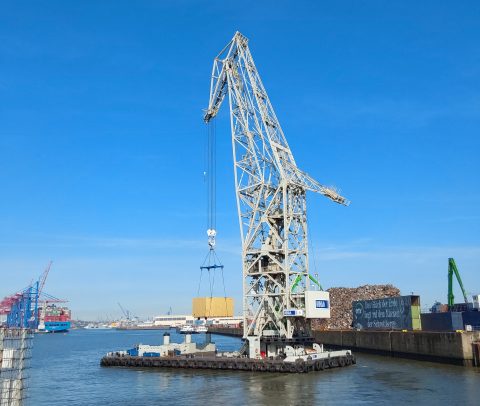
No ordinary heavy transport
DMG MORI was recently tasked with shipping a DMU600, one of its milling machines weighing 77 tons, out of Pfronten to Hamburg. The 1,200-kilometre route across Germany usually takes three nights, however, as Bouwe van der Meer writes in his latest contribution to Project Cargo Journal, the task was not as straightforward.
Initially, it was supposed to be a regular (heavy) transport through the current heavy transport route from Pfronten (DE) to Hamburg (DE). Unfortunately, this route, running through the little town of Pfronten, was not possible due to the extreme length of the low-loader combination with 14 axles. The turns through the small town of Pfronten are too tight for this huge truck used for transport.
The truck, with a total length of 35 meters, a weight of 150 tons and a width of five meters, had to take a long detour journey to reach the final motorway to Hamburg. The first detour was from the factory into the opposite direction towards Austria to cross the border at Vils, Austria. The composition then crossed the border into Germany again towards Füssen. From there it took a country road to Marktoberdorf.
Due to the width of the truck (almost 5 meters), most of the route had to be prepared with no parking zones and some removal of traffic signs. However, on the first night, the convoy managed to complete some 100 kilometres
The second night of heavy transport
During the second night, the heavy transport convoy was able to use the motorways, taking the route A7 (Feuchtwangen) – A6 (Nuremberg) – A 9 (Leipzig) – A14 – Magdeburg – A2 Hanover – A7 Hamburg.
In Hamburg (Waltershof) the truck was accompanied by the police to reach terminal CTB for its destination to China. However, the road to the terminal was blocked off some 330 meters before the destination as part of the quay wall had broken off.
Crane to the rescue
The container ship, bound for China, had already berthed and the gantry cranes were already loading the ship. There was no time to waste!
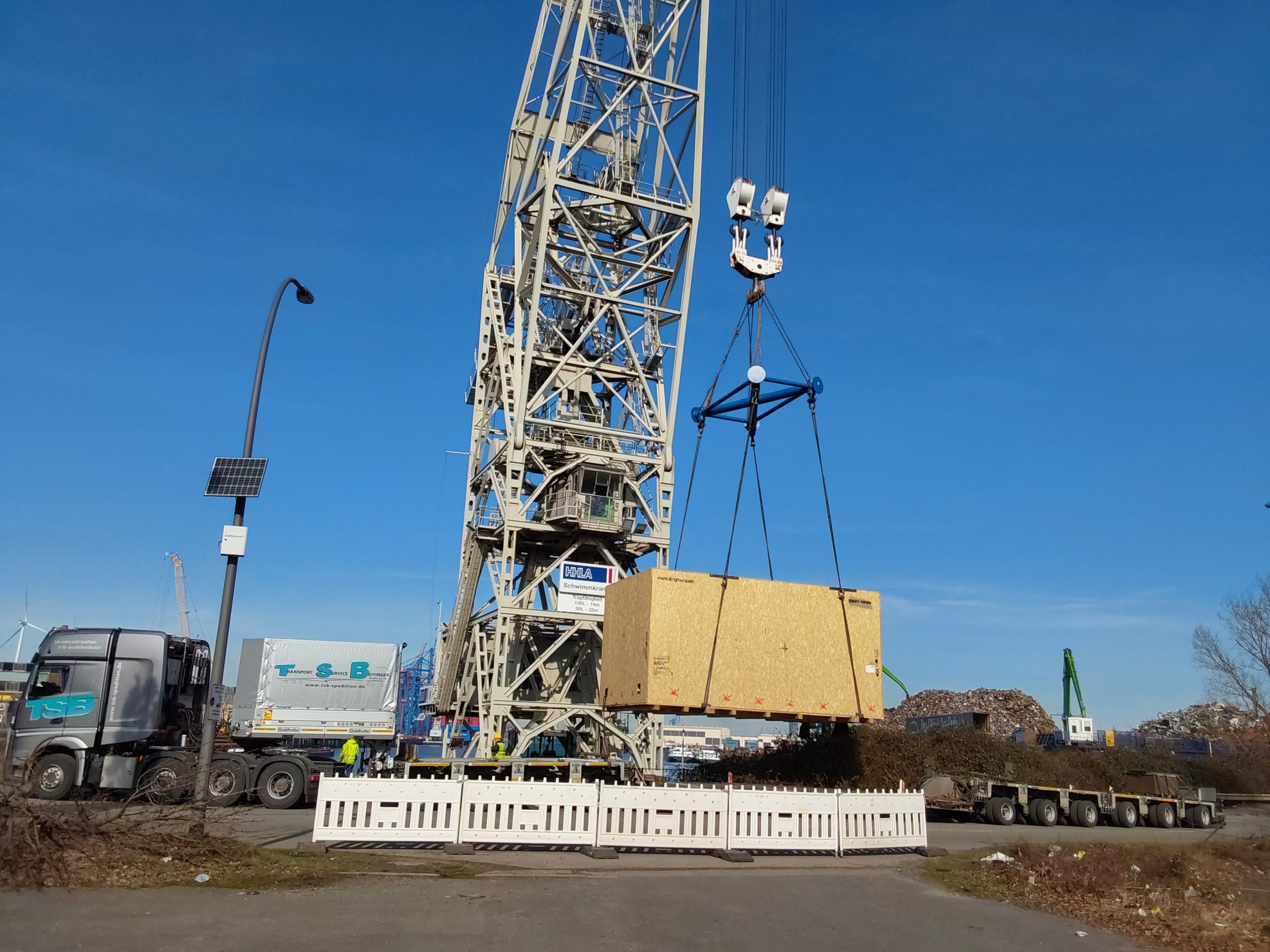
The floating crane that was supposed to place the 77-ton heavy case on the container ship, was already waiting for the cargo at the terminal. The crane operator could almost see the truck that was blocked 300 meters away.
The sea freight forwarder happened to be there as well and quickly phoned the crane operator. Because the truck was parked close to the quay wall, the crane operator was able to lift the case directly from the truck, take it onboard and place it later on the containership, on time for departure to China.
You just read one of our premium articles free of charge
Register now to keep reading premium articles.


